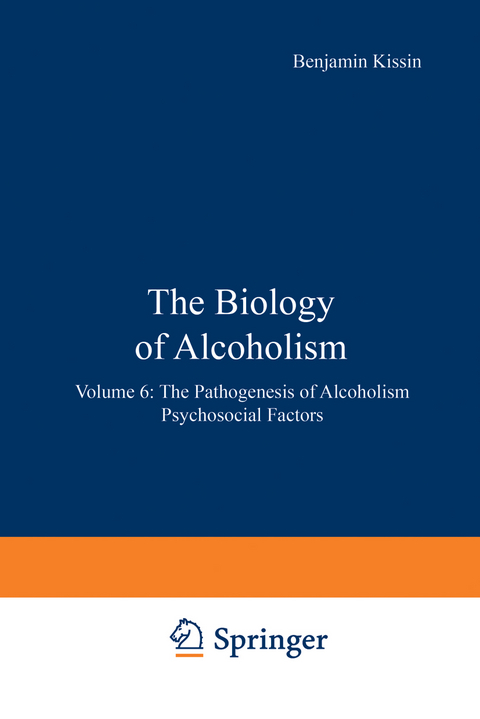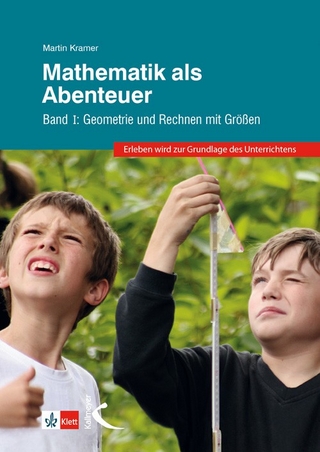
The Biology of Alcoholism
Springer-Verlag New York Inc.
978-1-4684-4276-2 (ISBN)
of Volume 6.- 1 Types of Alcohol Dependence.- Factors of Change.- The Need for a Unifying Concept.- Individual Variability.- The Problems of Alcohol.- Types of Alcohol Dependence.- The Concept of Social Dependence.- Summary and Some Implications for Research, Prevention, and Treatment.- 2 The Natural History of Alcoholism.- Historical Aspects.- Natural History Studies.- Alcoholism in Females.- Spontaneous Remission.- Social Drinking in Ex-Alcoholics.- Abstinence.- Morbidity.- Mortality.- Conclusions.- References.- 3 Psychiatric Characteristics of Alcoholics.- Acute Alcohol Psychoses: Intoxication and Withdrawal.- Alcoholism and Affective Disorders.- Alcoholism and Suicide.- Alcoholism and Schizophrenia.- Alcoholism and Sociopathy.- Alcoholism and Neurosis.- Treatment Implications.- Summary.- References.- 4 Clinical and Prealcoholic Personality Characteristics.- Objective Personality Batteries.- Projective Personality Tests.- Perceptual Tests.- A Clinical Alcoholic Personality Model.- References.- 5 Why Do Alcoholics Drink?.- The Evolution of “Addictive” Drinking Behavior.- The Issue of Loss of Control.- Individual Drinking Patterns.- Summary.- References.- 6 Alcoholism in Women.- The Causative Theories.- General Conclusions.- References.- 7 The Alcoholic Family.- Family Assessment and Measurement Techniques.- Family Environment and the Development of Alcoholism.- Family Determinants of the Course of Alcoholism.- The Impact of Alcoholism on the Family: Family Violence.- Conclusions.- References.- 8 Ethnicity and Nationality in Alcoholism.- Drinking Subcultures.- A Socialization Model of Drinking.- The Dynamics of Drinking Socialization.- The Effects of Assimilation on Ethnic Drinking Patterns.- Conclusion.- References.- 9 Religion and Alcoholism.- Theories of theMoral and Symbolic Dimensions of Drinking.- Religion and Drunkenness in Primitive and Traditional Societies.- Religion and Alcoholism in Modern Societies.- References.- 10 Social-Class Factors in Alcoholism.- Historical Background.- Institutional Rates.- Statistics of Troubles.- Direct Measures of Drinking.- Measures of Drinking Problems.- Summary, Discussion, and Conclusion.- References.- 11 Occupational Factors in Alcoholism.- Review of the Literature.- Structural Characteristics of Occupations.- Discussion and Conclusions.- References.- 12 Region and Urbanization as Factors in Drinking Practices and Problems.- Geography and Drinking.- Alcohol Measures and Geographic Variables.- Geographic Units and Alcohol Studies.- Variation by Region and Urbanicity in Drinking Practices and Problems in the United States.- New Data on Drinking Patterns.- Alcohol-Related Problems.- Regional Differences in an International Perspective.- Urban-Rural Differences in an International Perspective.- Alcohol and the Process of Urbanization.- References.- 13 A Comprehensive Theory of the Pathogenesis of Alcoholism.- System Dynamics.- A Theory of Alcoholism.- Investigating Ways to Deal with Alcoholism.- Conclusion.- References.
| Zusatzinfo | XXVIII, 695 p. |
|---|---|
| Verlagsort | New York, NY |
| Sprache | englisch |
| Maße | 152 x 229 mm |
| Themenwelt | Schulbuch / Wörterbuch |
| Geisteswissenschaften | |
| Naturwissenschaften | |
| Sozialwissenschaften | |
| ISBN-10 | 1-4684-4276-7 / 1468442767 |
| ISBN-13 | 978-1-4684-4276-2 / 9781468442762 |
| Zustand | Neuware |
| Haben Sie eine Frage zum Produkt? |
aus dem Bereich


